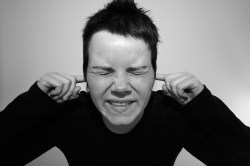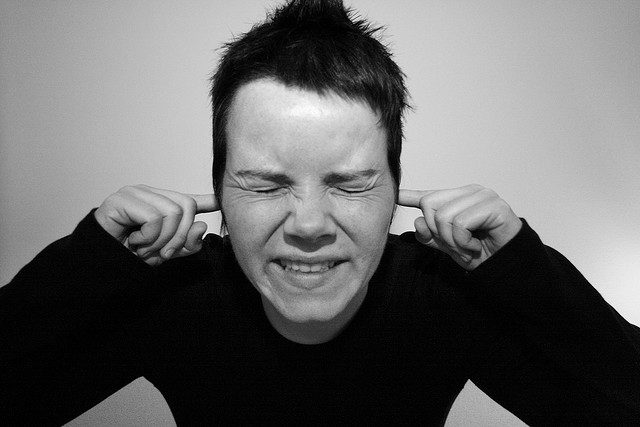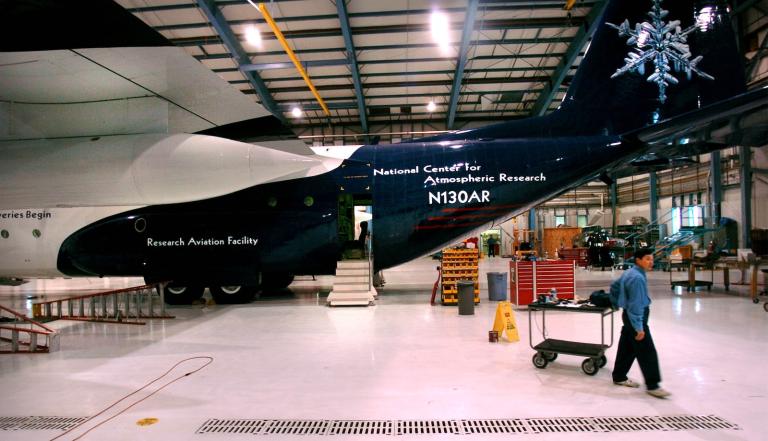
habedesign
On Tuesday Night, PBS’s Frontline aired an hour-long special on the climate saga over the past four years — focused centrally on the skeptics themselves, whom PBS’s John Hockenberry depicts as victorious in stopping any policy action. Touring Heartland Institute conferences, hearing plentiful sound bites from the Competitive Enterprise Institute’s Myron Ebell, we learn that these folks are basically high-fiving right now as the presidential campaigns studiously ignore the climate issue. And yes, they really do think the science is on their side, and that they’re winning on the intellectual merits.
Not that Hockenberry agrees — one of the gems of “Climate of Doubt” is a deft explanation of how climate skeptics come up with the bizarre assertion that the planet hasn’t been warming lately. As NASA’s Gavin Schmidt nicely explains to Hockenberry, all you have to do is go back over the noisy temperature record and “pick the endpoints” of your analysis — and you can promptly uncover numerous temporary cooling periods. “But actually, the whole thing has been moving up,” Schmidt explains — warming over the course of many decades.
Hockenberry then steps in with a wonderful analogy: Skeptics, he explains, are “going down the up escalator.” Yup, that’s right: The “very factual” arguments of climate deniers — as one North Carolina state legislator captured in the program puts it — really are that weak.
Ironically, though, “Climate of Doubt” is itself involved in picking endpoints — in this case, the endpoints of how it narrates the climate story. The program is heavily focused on the last four years, and on relating how momentum was lost by those who call for climate action, and gained by a small band of skeptics who rallied the Tea Party grassroots and forced the issue off the agenda, especially after the 2010 midterm election.
Thus, “Climate of Doubt” starts with the climate issue at a high point — Al Gore has just won the Nobel Peace Prize; with Obama’s election, action seems all but assured — and progresses to a low: Public opinion has weakened, Tea Partiers have picked off moderate Republicans who think climate is real, and the 2012 presidential campaigns aren’t even talking about the issue. When you select those endpoints, it does indeed look like ardor for climate action has cooled considerably.
But what if you change the endpoints of the analysis? The story looks different. “Skeptics had found a seat at the table,” remarks Hockenberry of climate hearings in Congress early in Obama’s term. But climate skeptics testifying before Congress isn’t something new — the Gingrich Republicans wheeled them in back in 1995! And they were influential throughout the George W. Bush administration. It’s just that they got a temporary infusion of mojo from the economic collapse and the Tea Party uprising.
Meanwhile, if you look at the public opinion data differently, you find that of late it has shifted back towards belief in the reality of human warming, and a slight majority belief that it is caused by humans. The issue isn’t cooling right now — it’s actually heating up!
The reason, of course, is the weird weather: The non-winter of 2011-2012; the scorching summer with its heat waves, drought, and wildfires. Politicians haven’t caught on yet, perhaps, but global warming is becoming a winning issue for them again because of this shift. Because people feel viscerally that something isn’t right with the weather, right where they live — right now.
Nevertheless, it is certainly important to understand what happened in the middle of Obama’s term, when climate skeptics caught a wind at their backs. “Climate of Doubt” largely pins this explanation on the economic collapse and the Tea Party — and also, frankly, suggests that making Al Gore the poster child of global warming did a perfect job of riling the right.
As a result of all of these factors, the climate issue became Exhibit A for our political, and also factual, polarization. It’s the atmospheric equivalent of the debt ceiling fight. Partisan emotions derailed progress and skewed beliefs about reality itself — but let us not forget that growing awareness that climate change is now here and weirding the weather is also highly emotional and frightening. It’s the weather, stupid: It always was on this issue, which is why climate skeptics can’t possibly win in the long run.
Climate change is here, and it was only a matter of time until people actually noticed. When we look back at the climate issue 10 years from now, we may realize that “Climate of Doubt” did not actually capture the skeptics’ triumph, but rather, one of their last stands.
 This story was produced as part of the Climate Desk collaboration.
This story was produced as part of the Climate Desk collaboration.



